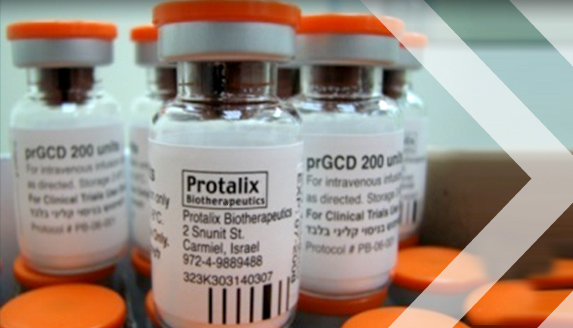Protalix Announces Strategy for Novel CF Drug AIR DNase for Recurrent Respiratory Infections

 Protalix BioTherapeutics, Inc., an Israeli pharmaceutical company known for its proprietary, US Food and Drug Administration-approved, plant-based enzyme taliglucerase alfa for Gaucher disease, recently announced their new company strategy for accelerated growth. The Company has begun reinforcing their R&D efforts and laying new groundwork for a renewed focus on their portfolio of novel pipeline products — both old and new — for the effective research and development of “bio-better” products that boast clinically superior treatment response profiles. Included in Protalix’s announced line-up is a highly promising therapeutic for cystic fibrosis (CF), a rare genetic disease that can greatly compromise the respiratory tract and reduce both quality of life and lifespan.
Protalix BioTherapeutics, Inc., an Israeli pharmaceutical company known for its proprietary, US Food and Drug Administration-approved, plant-based enzyme taliglucerase alfa for Gaucher disease, recently announced their new company strategy for accelerated growth. The Company has begun reinforcing their R&D efforts and laying new groundwork for a renewed focus on their portfolio of novel pipeline products — both old and new — for the effective research and development of “bio-better” products that boast clinically superior treatment response profiles. Included in Protalix’s announced line-up is a highly promising therapeutic for cystic fibrosis (CF), a rare genetic disease that can greatly compromise the respiratory tract and reduce both quality of life and lifespan.
AIR DNase, or PRX-110, is formulated to exhibit actin inhibition resistance that works to enhance lung function and reduce CF patients’ susceptibility to recurrent respiratory tract infections, actively strengthening its potency once in contact with patients’ lung secretions. Previous laboratory tests on CF animal models and on human sputum reveal AIR DNase’s potential ability to competitively improve disease outcomes, when compared to currently available CF treatments on the market today.
[adrotate group=”1″]
Protalix is working on opening efficacy clinical trials for AIR DNase for CF in a non-IND setting within the year, and finalizing and releasing results sometime in early 2016. Afterward, the company plans to close a partnership agreement with an appropriate company for further research and development.
The company plans to initiate clinical efficacy trials of AIR DNase for the treatment of Cystic Fibrosis (CF) in a non-IND setting during 2015. Upon reviewing the results of the trial, expected in early 2016, Protalix intends to collaborate with a well-suited partner for further development.
In other news on CF treatments specifically formulated to protect the lungs from new and recurrent infections, a professor and co-director of the Center for Vaccine Research at the University of Pittsburgh led a team of scientists in developing a novel therapy that utilizes cationic antimicrobial peptides that have demonstrated superior efficacy over regular antibacterial agents, especially in treating drug-resistant pathogens. These “eCAPs” (engineered cationic antimicrobial peptides) were tested on 32 gram-positive and 110 gram-negative clinical isolates.







